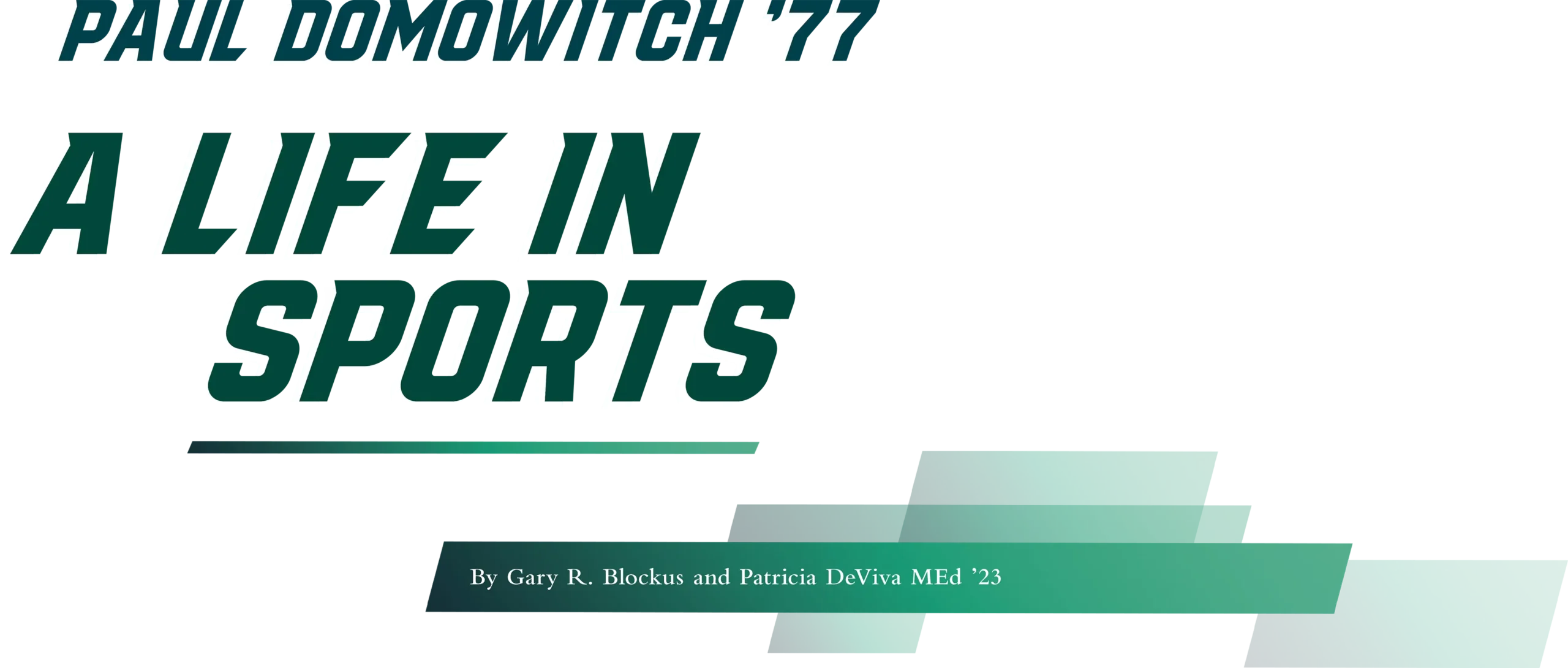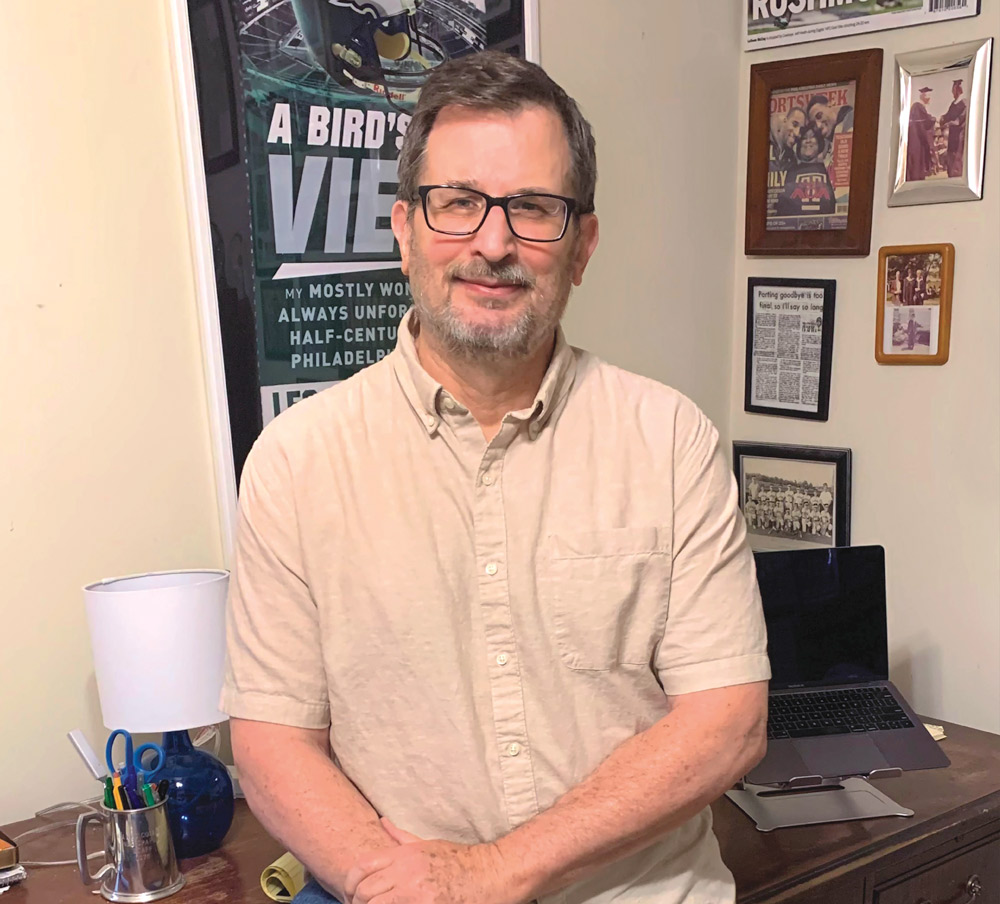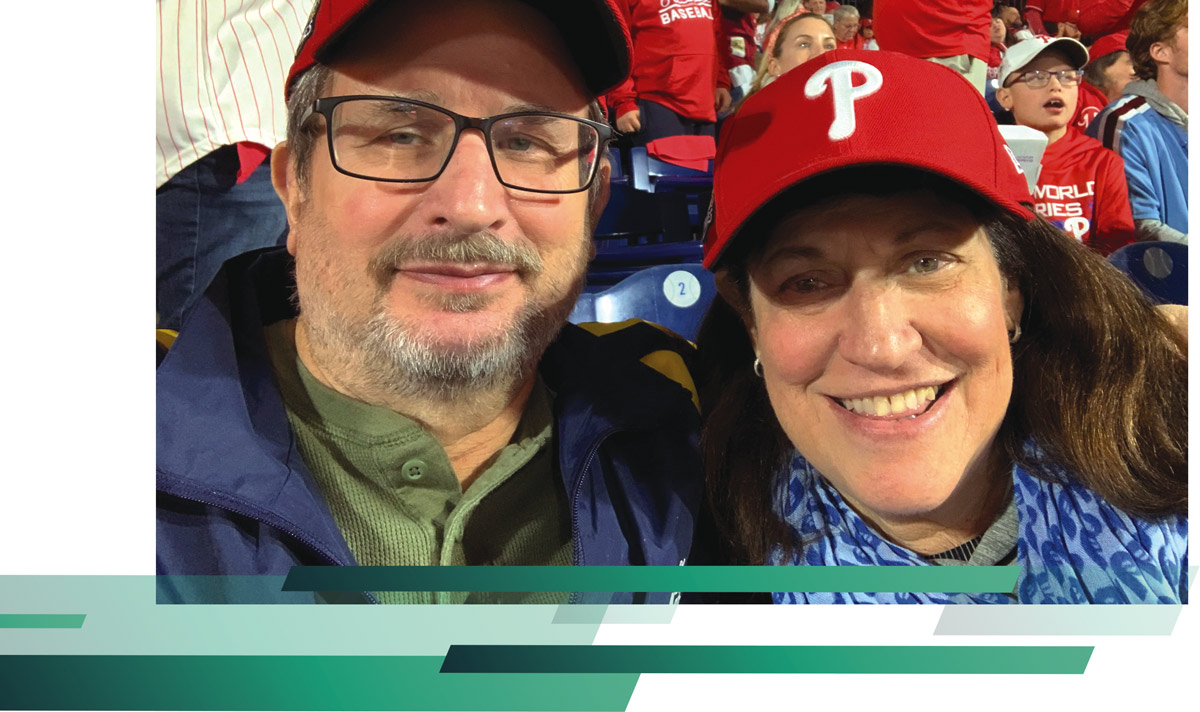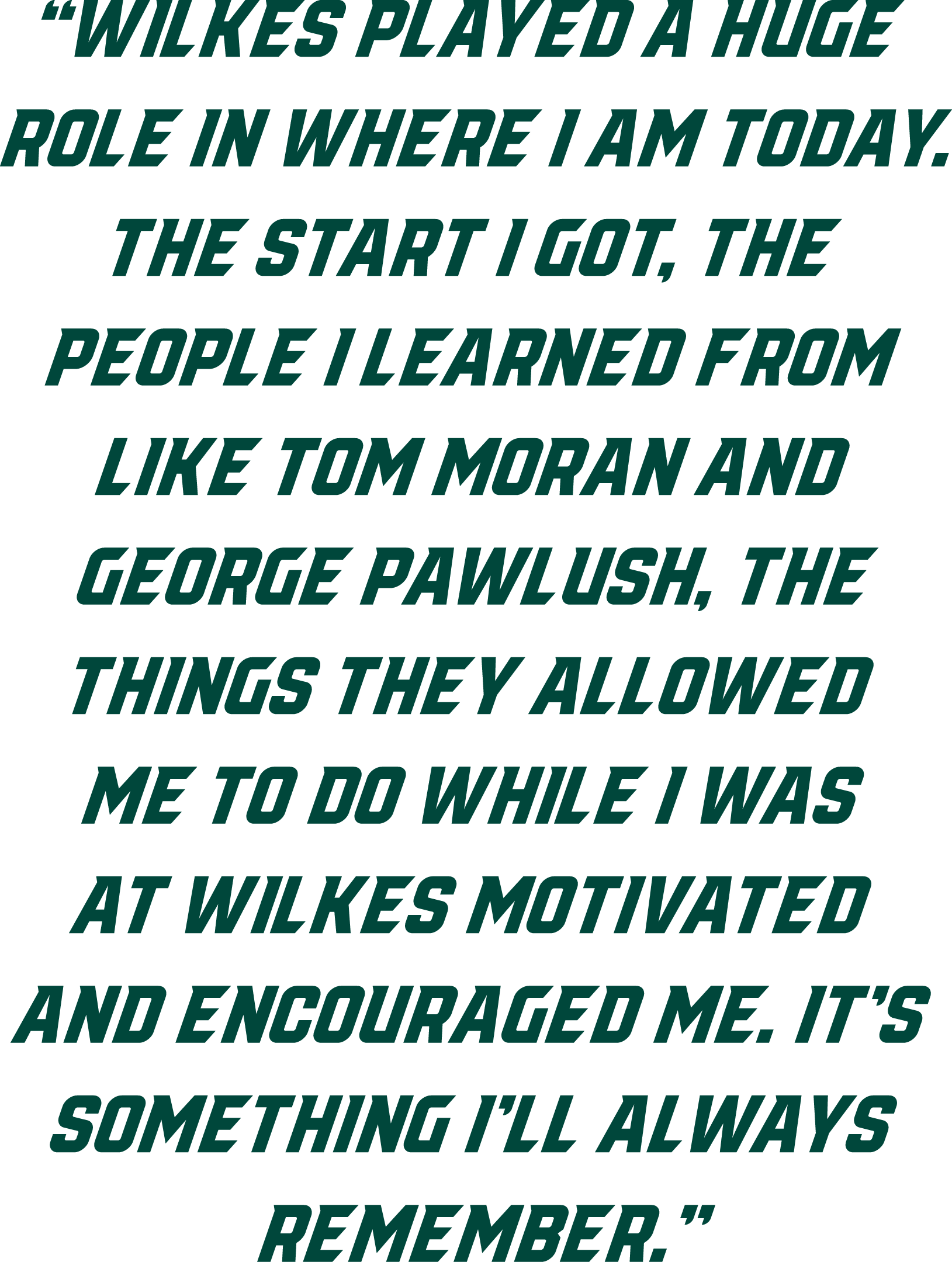


Domowitch didn’t get to Philly without hard work, and didn’t become a go-to read without being a great reporter and writer. From a small town where he announced Wilkes wrestling matches and radio coverage of Colonels basketball to the big-time of covering professional boxing and professional football, Domowitch always stood out.
He played high school basketball, and while he was good, he was a realist. “A lot of us wanted to play for the Yankees or the Celtics, but I knew that wasn’t going to happen,” he admitted. “I wanted to be a sportswriter. I think everybody back then wanted to write for Sports Illustrated. It was the Golden Age of Sports Illustrated.”
He chose Wilkes, which was at the tail end of a magical NCAA Division III football run of 32 consecutive wins under the late Rollie Schmidt, featured Division I wrestling and hosted the Wilkes Open, which Sports Illustrated once referred to as “The Rose Bowl of Wrestling.”
There was only one problem: Wilkes did not have a journalism major, so Domowitch did the next best thing and majored in English literature with a concentration in journalism. “It wasn’t that I wanted to major in English,” he said. “I really hated Chaucer and all that, but I knew what I wanted to do as far as working for a newspaper and becoming a sports writer.”
“Tom probably had as much effect on me as anybody in the profession,” Domowitch said. “He got me really hungry to want to do this for a living. Everyone’s got a guy like that when they’re young, someone who motivates them and encourages them. He was also the advisor for The Beacon, and I became the sports editor. We had a great staff.”
Not content to just write for the paper, Domowitch also found mentorship under George Pawlush ’69, MS ’76, who was the sports information director. “Next to Tom, George was as influential,” he said. “I worked for him all four years, covering everything. I was the PA announcer for wrestling, I did WCLH radio for basketball, but I knew I wasn’t going to make a living as a broadcaster.”
Before graduating, Domowitch began searching for job opportunities. Newspapers closer to home in Wilkes-Barre and Scranton wanted experienced reporters. The Midland Reporter-Telegram, halfway between Dallas and El Paso, did not—he got a job offer and left before completing his degree. “My parents thought I was crazy,” he said. “I was making like $140-$160 a week.”
He took his final course to meet graduation requirements over the summer of 1976 before leaving for Texas, but completed some writing assignments while in Texas. He graduated in May 1977 after almost a full year of work experience. “It was a four-man staff in Midland, but it was great,” he said. “I got to do a lot of writing and covered everything from high school to the Cowboys, every sport imaginable. They even had minor league baseball there. I spent a year-and-a-half there. It was so desolate. There wasn’t a lot going on other than work, and I was going stir crazy.”

While the Rangers weren’t particularly good back then, Domowitch did manage to find something to bring back with him to Pennsylvania when the time arrived: his wife, Shelley. Mutual friends had introduced them when he was working in Fort Worth and she in Dallas, and they hit it off right away. Shelley is a University of Oklahoma graduate and loves football, especially Sooners football.
“He’s very fortunate to have such a huge football fan for a wife,” said Les Bowen, another of the Philadelphia Eagles beat writers for the Inquirer. “I always text him if the Sooners lose and say, ‘I feel sorry for you tonight.’ She’s very into football. She is very into what Paul does. For those of us covering the Eagles, sometimes it’s a little bit of a dance with your personal life, but they’re still going strong.”
“I think we’re very well-suited for each other,” Shelley Domowitch said. “Paul is just a really good guy, he truly is. Some of the traveling he does gets hard at times, but sometimes it’s good, too. We have a lot of common interests, but we also like to do what we do.” Their common interests include grown daughters Allison, a commercial litigation lawyer in Philadelphia, and Amy, who works for the Philadelphia Phillies.
By 1982, Philadelphia was calling. For three seasons, he worked the Eagles and NFL beats, and then contributed special projects and enterprise stories before finally focusing squarely as the NFL beat writer for the Philadelphia Daily News and Inquirer. While most football fans would be thrilled to attend one Super Bowl, let alone have inside access to the players and coaches, Domowitch has covered “34 or 35, I missed one a few years ago when I had my hip replaced, but it’s the only one I missed since the early 80s.”

While Domowitch remembers the thrill of the Eagles winning the Super Bowl, his efforts at the game and postgame are what stand out to Bowen. Domowitch was sick with the stomach flu, but he still did his interviews, hit his angles and beat his deadlines. “Obviously it was the Super Bowl,” Bowen said, “but even in a regular season game, he would have done his work, and done it well. You can always count on him.”
Domowitch has covered the most remarkable quarterbacks in Philadelphia history, including Randall Cunningham, Donovan McNabb, Nick Foles and Carson Wentz, but he’s never forgotten his Northeast Pennsylvania roots, and the start Wilkes gave him.
“Wilkes played a huge role in where I am today,” Domowitch said. “The start I got, the people I learned from like Tom Moran and George Pawlush, the things they allowed me to do while I was at Wilkes motivated and encouraged me. It’s something I’ll always remember.”
Since retirement, does Domowitch miss covering the Eagles for the Philadelphia Inquirer and Daily News?
“You know, I don’t,” he said. He’s kept busy writing about football for The 33rd Team, an online journal where he can expand his coverage to all of football, co-hosts a Monday night radio show during the football season on wbcbsports.com, and will be doing a video podcast for the A2D Radio Network. He also published a book during COVID and is working on another. And he now gets to spend more time with his family. “My wife and I can do whatever we want, and I don’t have to travel as much or at all,” he said. And he gets to spend time with his grandson, who will be two in August. “All of that is really nice.”
Looking back on his long, successful career, what advice does Domowitch have for Wilkes students who want to break into sports journalism? “When I first started out, I had to move from Wilkes-Barre to Midland, Texas to get a job,” he remembered. “All the papers on the East Coast wanted experience, so I went and got it. Get as much experience as you can. Be willing to go wherever the work is, and prove you are valuable.”